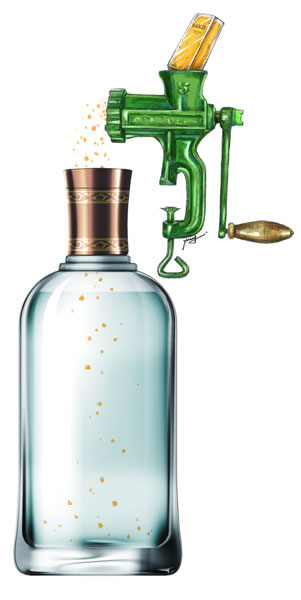Baijiu goes for the gold
 |
|
[Photo by Wang Xiaoying/China Daily] |
But experts have dismissed the idea that gold flakes will add flavor to the spirit or enhance its quality. Mike Peters and Dong Fangyu report.
What do curry, schnapps, bottled water, chocolate, hamburgers, soup, digestive capsules, bagels and lobsters have in common?
All of these edible items have been embellished with gold leaves or gold flakes in recent years, as marketers seek some extra sizzle for their products.
The latest to seek the shiny status is China's distilled white spirit, baijiu, which has seen its sales slide as the government pursues a policy against extravagance and corruption. Industry observers question whether regulators would approve of such a showy step in this climate, though it's a mystery that who has asked the government to approve glittery baijiu-and who might buy it.
Putting gold in alcoholic beverages is currently illegal in China, though such bottles have sporadically popped up on store shelves. In the West, a few gold-flake tipples have been market successes, particularly the cinnamon schnapps Goldschlager and the German herbal liqueur Goldwasser.
Dong Shuguo says: "I have seen some sparkling wines and dry white wines with golden flakes, such as Blue Nun. But they are all for decoration.
"Gold flakes will only make the bottle look elegant and pleasing to the eyes. They add nothing to the flavor," he says.
Blue Nun Gold, in fact, was not a luxury product but an effort to appeal to young female drinkers who "like to try something new".
















